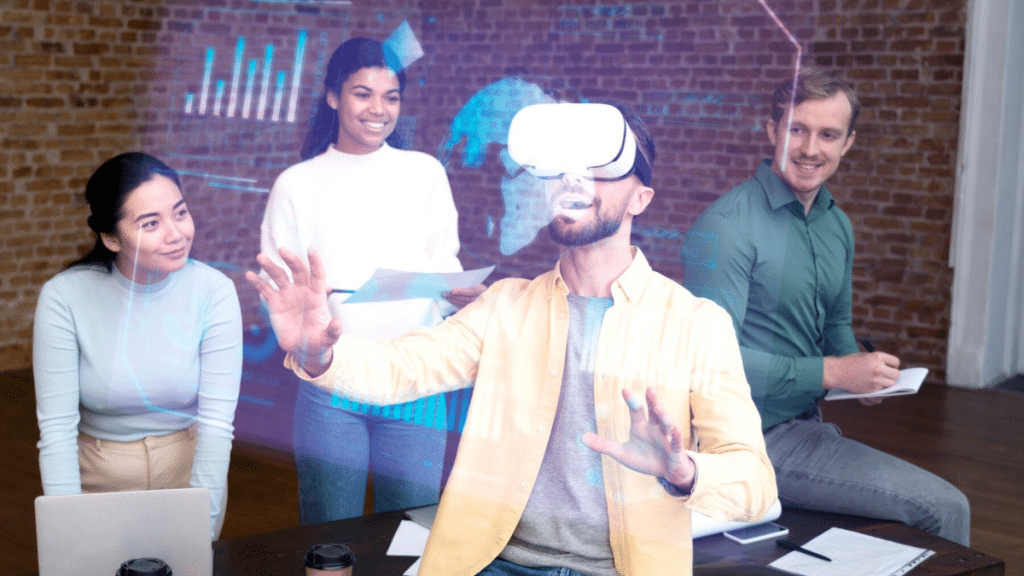Technology is revolutionising major events, enhancing experiences through AR and VR, streamlining management with digital tools, and keeping fans connected. From immersive viewing to efficient organisation and global engagement, these innovations are shaping the future of how we participate in and enjoy events, ensuring they’re more accessible and enjoyable for everyone.
Enhancing the Attendee Experience with AR and VR
Augmented Reality (AR) and Virtual Reality (VR) are transforming how we experience events, making them more immersive and interactive. AR allows attendees to access live stats and exclusive content right before their eyes at concerts and sports matches, enhancing their connection with the action. For example, the NBA has integrated AR to provide fans with player stats and replays during games. Meanwhile, VR transports those unable to attend in person into the heart of the event, offering a 360-degree experience as if they were there.
Events like the FIFA World Cup have offered VR viewing options, letting fans worldwide feel the excitement of the matches. These technologies are not just improving the viewing experience but also enriching the attendee’s engagement, making every moment more memorable. Brands like Samsung and Oculus are leading the way, providing the hardware that powers these innovative experiences at events around the globe.
Streamlining Event Management and Engagement
Digital platforms and event management software are revolutionising the organisation of major events, making every aspect from ticketing to engagement smoother and more efficient. Tools like Eventbrite for ticket sales and Trello for task management are simplifying complex logistics, allowing organisers to focus on creating unforgettable experiences.
These platforms offer features that track attendance, gather real-time feedback, and analyse participant behaviour, giving valuable insights for future planning. For example, social media integration enables real-time interaction with attendees, enhancing the event’s buzz and excitement.
Apps like Slido make events more interactive by allowing live polls and Q&A sessions, encouraging attendee participation. This digital transformation is not just about efficiency; it’s about creating a more dynamic and accessible event atmosphere. Technologies such as RFID for entry management and mobile apps for event schedules are further examples of how the event landscape is becoming more user-friendly, ensuring that both organisers and attendees can enjoy a seamless experience.
Keeping Fans Connected and Informed
In today’s digital age, staying connected to your favourite events and keeping up with the latest updates is easier than ever, thanks to social media and digital platforms. These tools have changed how fans interact with events, offering real-time updates, behind-the-scenes content, and much more. A prime example of this is finding out about major upcoming events, such as the Cheltenham Festival. Fans looking forward to this prestigious horse racing event might wonder, when is Cheltenham Festival 2024? Thanks to technology, accessing this information is straightforward, with details readily available online, ensuring enthusiasts are well-informed and never miss out on the action.
Digital platforms not only keep fans updated but also foster a sense of community, allowing people from all over the world to share their experiences and discussions about events. This global connectivity ensures that even those unable to attend in person can be part of the excitement, engaging with other fans and participating in discussions. Whether it’s through live-streaming services, social media, or dedicated event apps, technology ensures that major events are more accessible and inclusive than ever before.

